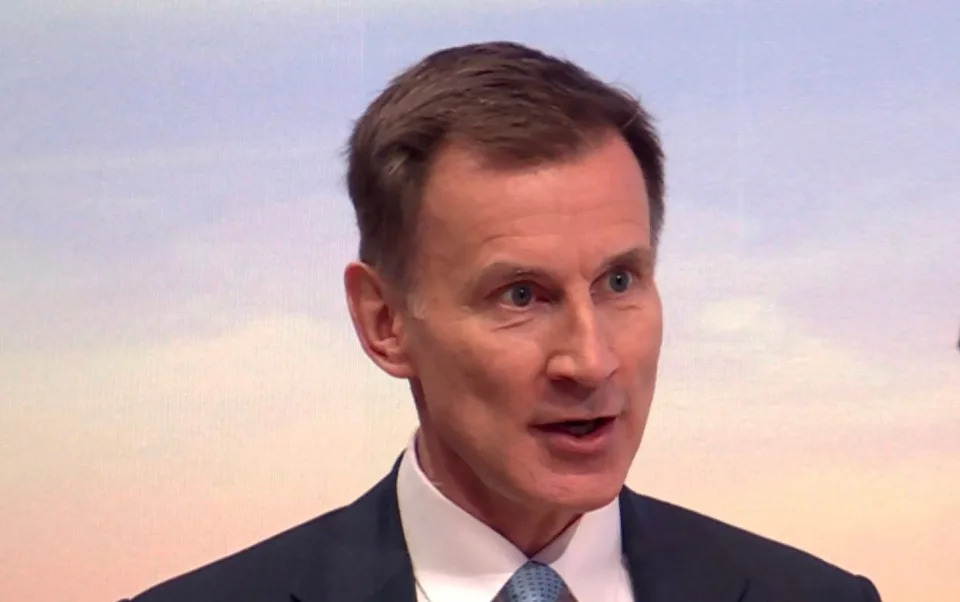THREE OF MY FAVORITE THINGS
NO CHAIN SMOKING LIKE CIGARETTES
Tobi Thomas
Mon, 4 March 2024

Tobacco is estimated to be directly linked to 54,300 cases of cancer a year
Tobi Thomas
Mon, 4 March 2024

Tobacco is estimated to be directly linked to 54,300 cases of cancer a year
in the UK.
Photograph: David Jones/PA
The number of people smoking pipes, shisha and cigars in the UK has risen fivefold over a decade, and experts say this could lead to a rise in smoking-related cancers such as mouth and lung cancer.
Last year there were about 772,800 exclusive non-cigarette tobacco users, compared with 151,200 in 2013, according to a study published in the journal Nicotine and Tobacco Research.
The figures are based on research by UCL academics, who surveyed a representative sample of about 1,700 adults a month on their smoking habits between 2013 and 2023.
The research found that the greatest increase in the use of non-cigarette tobacco was among young adults, with 3% of 18-year-olds using these forms, compared with 1.1% of 65-year-olds. The study also found the prevalence to be higher among men and current vapers.
In 2022-23, one in 10 smokers used only non-cigarette tobacco, such as in cigars and shisha pipes. Cigars, shisha, cigarillos and pipes are non-cigarette forms of smoking and can be more harmful than cigarettes.
A person smoking a shisha pipe for between 20 and 80 minutes can inhale the same amount of smoke as someone smoking more than 100 cigarettes, according to the British Heart Foundation. The charity said tobacco-free shisha still produced dangerous toxins from the smoke.
The study said possible reasons for the stark rise could include people believing these forms of smoking may be less harmful than cigarettes, as well as financial reasons.
The study noted that the ban on menthol cigarettes in May 2020 did not include these forms of smoking. This could mean that people who preferred the flavour may have turned to other products not included in the ban, such as shisha and cigars.
Tobacco is estimated to be directly linked to 54,300 cases of cancer a year in the UK. Ministers are considering legislation that would mean anyone born on or after 1 January 2009 would not legally be able to buy cigarettes in England at any point during their lives, as the smoking age would be raised by one year every year.
Dr Ian Walker, the executive director of policy at Cancer Research UK, said: “Tobacco kills one person every five minutes in the UK. Research like this shows that the issue of smoking isn’t just about cigarettes – all tobacco products are harmful and cause cancer, no matter what form they come in.
“That’s why it’s crucial that the government’s age-of-sale legislation applies to all tobacco products. If implemented, this policy will be a vital step towards creating a smoke-free UK, preventing future generations from ever becoming addicted to tobacco.”
Dr Sarah Jackson, the lead author of the paper, based at UCL’s Institute of Epidemiology and Health, said: “This 10-year-long study captures the shift in trends of non-cigarette tobacco use and paints a concerning picture. Although rates of cigarette smoking have fallen, our data show there has been a sharp rise in use of other smoked tobacco products, particularly among young people.
“It’s vital that smoking cessation services are adequately funded and available across the UK so that the around 772,800 people who use non-cigarette tobacco products, and the millions who use cigarettes, are given the support they need to quit.”
The number of people smoking pipes, shisha and cigars in the UK has risen fivefold over a decade, and experts say this could lead to a rise in smoking-related cancers such as mouth and lung cancer.
Last year there were about 772,800 exclusive non-cigarette tobacco users, compared with 151,200 in 2013, according to a study published in the journal Nicotine and Tobacco Research.
The figures are based on research by UCL academics, who surveyed a representative sample of about 1,700 adults a month on their smoking habits between 2013 and 2023.
The research found that the greatest increase in the use of non-cigarette tobacco was among young adults, with 3% of 18-year-olds using these forms, compared with 1.1% of 65-year-olds. The study also found the prevalence to be higher among men and current vapers.
In 2022-23, one in 10 smokers used only non-cigarette tobacco, such as in cigars and shisha pipes. Cigars, shisha, cigarillos and pipes are non-cigarette forms of smoking and can be more harmful than cigarettes.
A person smoking a shisha pipe for between 20 and 80 minutes can inhale the same amount of smoke as someone smoking more than 100 cigarettes, according to the British Heart Foundation. The charity said tobacco-free shisha still produced dangerous toxins from the smoke.
The study said possible reasons for the stark rise could include people believing these forms of smoking may be less harmful than cigarettes, as well as financial reasons.
The study noted that the ban on menthol cigarettes in May 2020 did not include these forms of smoking. This could mean that people who preferred the flavour may have turned to other products not included in the ban, such as shisha and cigars.
Tobacco is estimated to be directly linked to 54,300 cases of cancer a year in the UK. Ministers are considering legislation that would mean anyone born on or after 1 January 2009 would not legally be able to buy cigarettes in England at any point during their lives, as the smoking age would be raised by one year every year.
Dr Ian Walker, the executive director of policy at Cancer Research UK, said: “Tobacco kills one person every five minutes in the UK. Research like this shows that the issue of smoking isn’t just about cigarettes – all tobacco products are harmful and cause cancer, no matter what form they come in.
“That’s why it’s crucial that the government’s age-of-sale legislation applies to all tobacco products. If implemented, this policy will be a vital step towards creating a smoke-free UK, preventing future generations from ever becoming addicted to tobacco.”
Dr Sarah Jackson, the lead author of the paper, based at UCL’s Institute of Epidemiology and Health, said: “This 10-year-long study captures the shift in trends of non-cigarette tobacco use and paints a concerning picture. Although rates of cigarette smoking have fallen, our data show there has been a sharp rise in use of other smoked tobacco products, particularly among young people.
“It’s vital that smoking cessation services are adequately funded and available across the UK so that the around 772,800 people who use non-cigarette tobacco products, and the millions who use cigarettes, are given the support they need to quit.”


















